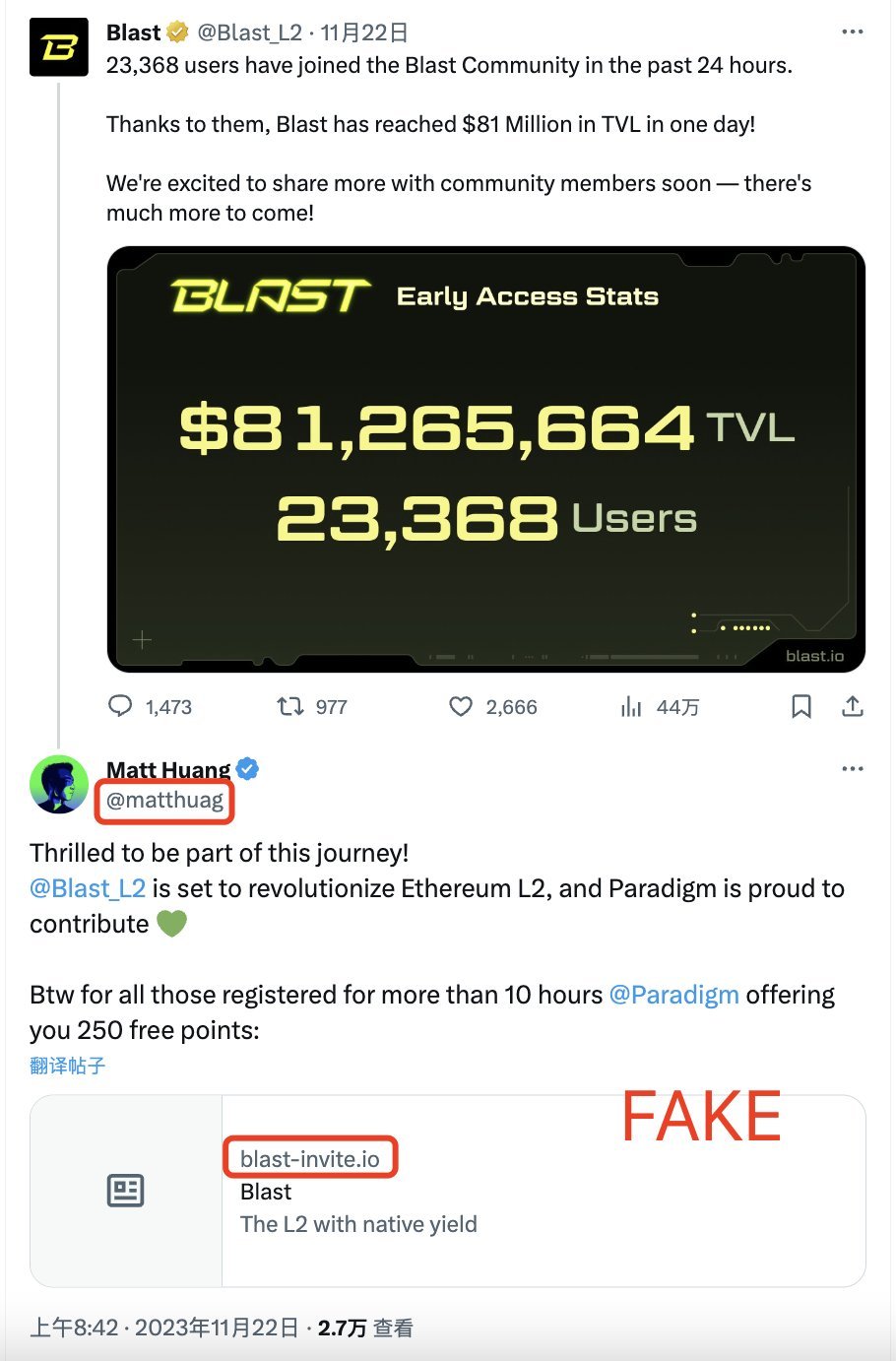Scammers continue to target the cryptocurrency market. Recently, they impersonated the co-founder of Paradigm, one of the leading venture capital firms, Matt Huang, and made thousands of dollars in fraudulent transactions using a phishing link associated with a domain sold for 1,700 liras with an io extension.
Stole Over $130,000
The cryptocurrency market remains a target for scammers. Recently, scammers impersonated Matt Huang, the co-founder of Paradigm, and launched a phishing attack through a link targeting Ethereum Layer 2 network called Blast, which is associated with prominent investors including Paradigm and “eGirl Capital”.
Chinese blockchain and cryptocurrency journalist Colin Wu reported that the scammer managed to steal over $130,000 from victims through the phishing attack. The message in which the scammer used the phishing link under Blast’s official tweet has not been removed yet.

Phishing is one of the fraudulent tactics designed to obtain users’ personal information. Such attacks are usually carried out through email, SMS, phone calls, or fake websites. The main purpose of phishing is to deceive people into disclosing their sensitive information, such as usernames, passwords, credit card details, social security numbers, etc.
The scammer deceived users by creating a fake website for Blast. To build trust and redirect people to the link, the scammer impersonated Huang.
Network Launched at the Beginning of the Week
Blast, the Ethereum Layer 2 network, was launched at the beginning of the week and received significant attention from users. Within a few hours of its launch, it saw the establishment of bridges for over $30 million worth of Ethereum (ETH) and stablecoins. Bridges are blockchain-based tools that allow users to transfer their cryptocurrencies between different networks.
This influx of activity is considered significant evidence of the strong demand for Layer 2 networks or protocols operating on top of Layer 1 Blockchains like Ethereum, aiming to alleviate bottlenecks related to speed, cost, and scalability. Blast’s success has been particularly notable in this regard.

 Türkçe
Türkçe Español
Español








